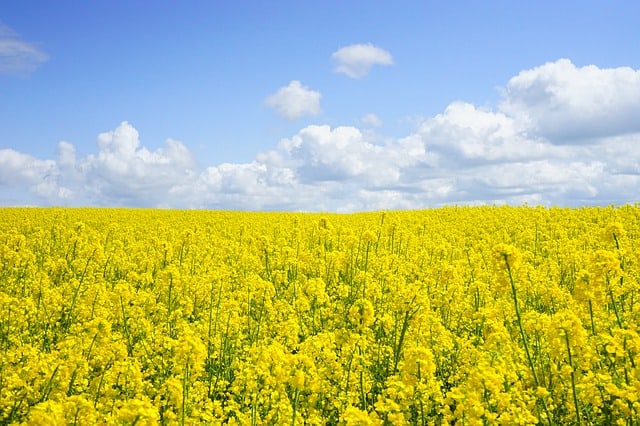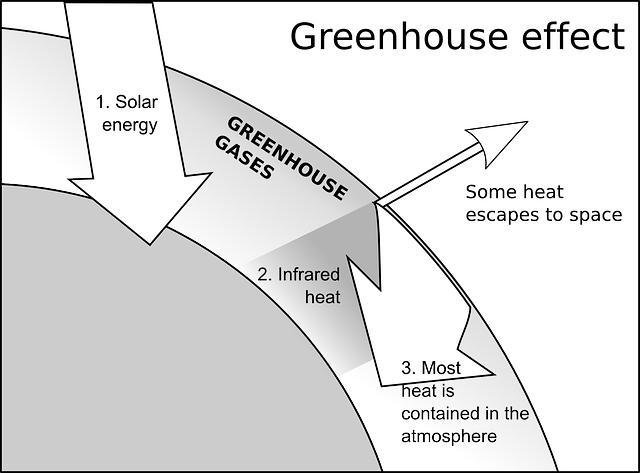Biodiesel vs Diesel: How They are Created and Differences Between Both of Them

Biodiesel refers to the renewable and clean-burning diesel which is used to replace the natural diesel. The newly discovered biodiesel is creating jobs, providing cleaner breathing air and improving the fuel security sector. Diesel, on the other hand, is a product which is created from crude oils.
The Creation Process of Diesel and Biodiesel
How Biodiesel is Produced?
Biodiesel is typically created from the vegetable oils like the animal fats, the canola oil as well as the recycled grease products like the used cooking fats and oils. The other feedstocks which are developed in the formation of this product are the pomgania trees, algae, camelina, and the jatropha. The fatty acid-rich feedstock is mixed with alcohol which will trigger the condensation of the molecules of water to leave behind the rich and pure fatty acids.
The process of making biodiesel is known as transesterification. It is a chemical process that creates a couple of products. The products are the methyl esters, as the biodiesel is chemically known as well as the glycerin, which is a very valuable by-product of the process. Glycerin is sold and utilized in the formation of various other products including soaps.
There are three known routes to the production of the methyl esters from the oils and fat as outlined below:
- The transformation of oils and fatty acids to alkyl esters through the catalysis of acids
- The base-catalyzed transesterification with alcohol
- The direct acid catalyzed esterification with methanol
How Diesel is Produced?
During the process of refining, the crude oil which is dark, highly viscous and thick is converted into a diesel fuel which is lighter and usable. Before understanding the creation of diesel, one needs first to understand the meaning of crude oil.
Crude oil is a naturally existing liquid that can be refined into different petroleum-based products and fuels. Through the distillation process, crude oils turn into various fuels as well as other petroleum products.
At the molecular level, various types of hydrocarbons make up crude oil. The hydrocarbon chains which are present in the crude oils exist in distinct lengths. The distillation leverages the opportunity of the fact that there are differences in the boiling points of the various distillates making up the crude oil. As such, it is used in separating the distillates one of which is diesel fuel.
The refining of the crude oil begins with thorough heating of the viscous fluid to more than 400 degree Celsius, a process that will lead to the liquid turning into vapor. The vapor will be directed into a fractional distillation section. As it begins to rise, the vapor finds cooler parts of the distillation tower and cools down.
As a result, the vapor will reach a given temperature point where the chains of the hydrocarbon making it up begins to convert back into a liquid state. Since there are different distillation temperatures for the distillates, the distillation plates capturing the various liquids are distributed regularly in the tower to capture the liquids appropriately.
The most elongated hydrocarbon in the crude oil boils at a temperature of 400 degree Celsius. Immediately the chain gets into the distillation section; they begin changing into liquids again. The longer hydrocarbon will settle at the bottom as bitumen or asphalt. Upon cooling down of the vapor to less than 370 degrees Celsius, there comes an emergence of fuel oils.
The diesel begins to form when the temperature of the vapor becomes 350 to 200 degrees Celsius. The vapor is seen to collect on the respective distillation plates from which it will be siphoned out into a holding tank.
Differences Between Biodiesel and Diesel
There are several differences between biodiesel and diesel. The main differences are discussed below:
- The source: The primary difference between biodiesel and diesel lies on the source separating them. The petroleum diesel is produced through a fractional distillation process of crude natural oil. On the other hand, biodiesel is created from animal fats and vegetable oils.
- Pollution: In terms of pollution, diesel is one of the most significant pollutants across the world. As such it leads to lots of heart infections as well as lung complications. On the contrary, biodiesel is classified as one of the most eco-friendly fuels in existence to date. It is more than 75 percent clean fuel source.
- Carbon dioxide release: Another difference between diesel and biodiesel is on the amount of carbon dioxide that is emitted into the atmosphere by the two fuels. Diesel is a fossil fuel that emits a lot of carbon dioxide to the atmosphere while biodiesel releases less carbon dioxide into the air by over 78%.
- Presence of helpful solvents: Biodiesel has a useful solvent that is applied in pipes to remove the deposits of diesel from such pipes. On the other hand, diesel lacks such solvents and therefore sticks on the transportation pipes.
- The number of cetane: Biodiesel is known to have a higher number of cetane because of the oxygen it carries. On the contrary, again, diesel contains a lesser amount of Crotane hence making it hard for the engines to start smoothly.
- Sulfuric acid: Diesel emits a lot of sulfuric acid to the atmosphere while the biodiesel releases lesser amount of sulfuric acid and other harmful products.
- The magnitude of usability: While biodiesel has not been significantly used in the whole world, diesel is known to almost everyone globally. Therefore, diesel is widely used as compared to biodiesel.
- Cost: In terms of cost, diesel is seen to be cost-effective as biodiesel is very expensive. The price of biodiesel is determined by the value of the products from which it is produced including the soybean which is very costly.
Is Biodiesel Better Than Diesel?
The question of whether biodiesel is better than diesel can be answered by giving the benefits of this fuel over the natural petroleum diesel. It is not possible for people to run away from the fact that biodiesel is better than diesel. The following reasons can be used to justify this fact:
- Eco-friendliness: Biodiesel produces a lesser amount of pollutants to the environment as compared to diesel. As such, it becomes environmentally friendly. The utilization of biodiesel does not lead to many complications which are caused when using diesel.
- Management of global warming issue: Biodiesel is a perfect fuel that can be used in managing the rising problem of global warming these days. Diesel, on the other hand, increases global warming hence it is correct to state that biodiesel is better than the natural diesel.
- Clean transportation and storage tanks: While diesel dirties the storage tanks and the pipes used for its transportation, biodiesel is utilized in cleaning the dirty deposits. It, therefore, means that biodiesel is cleaner and more efficient to transport than the diesel, making it better to use.
- Smooth running and ignition of engines: Engines which are run by biodiesel are easy to start and to operate than those driven by diesel. This is because of the high amount of cetane found in biodiesel and which is lacking in the diesel.
From these, reasons, it is proven beyond any reasonable doubt that the newly discovered biodiesel is the best fuel all need to use.
Sources:






